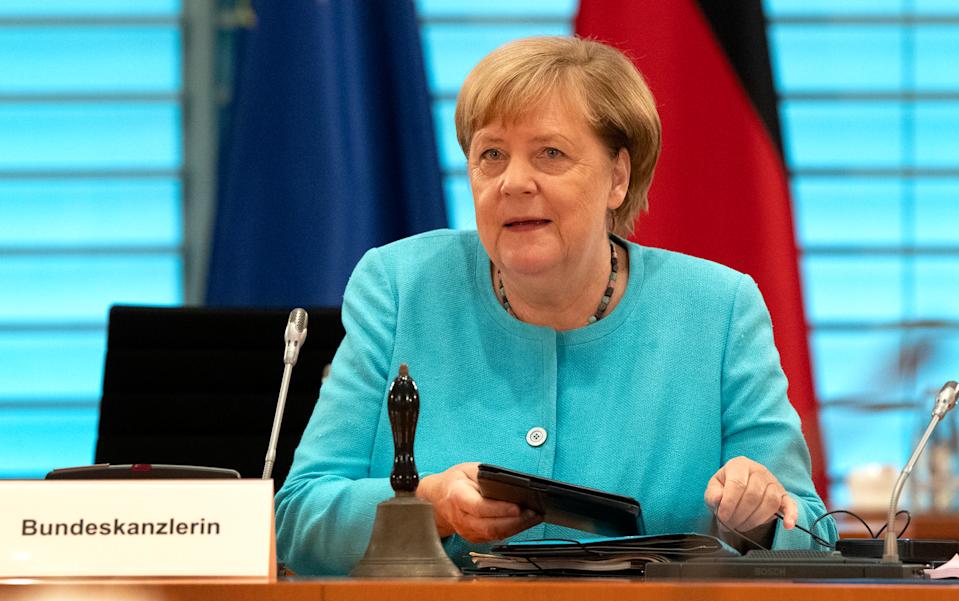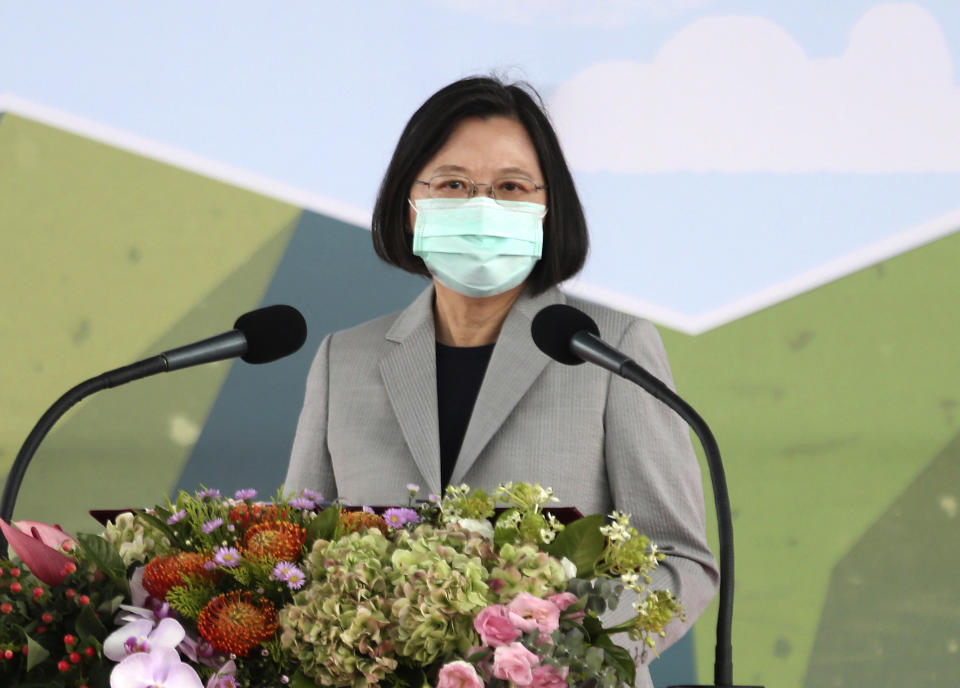Two former PMs name their top Covid-19 leaders

Chancellor of Germany Angela Merkel has been praised as being one of the best leaders during the Covid-19 pandemic due to her scientific approach.
Speaking at the Yahoo Finance All Markets Summit on Thursday, former New Zealand prime minister and co-chair of the World Health Organisation’s Independent Panel for Pandemic Preparedness and Response Helen Clark described Merkel as “the standout leader of our time in office now”.
Also read: ‘Don’t hold your hopes up’: Covid expert flags vaccine date
Also read: ScoMo needs to ‘swallow political pride’: Kevin Rudd
Also read: ‘Nightmare scenario’: WHO Covid-19 investigator shares worst fear
Wide-scale testing and a rapid response to the pandemic has helped keep the European country’s cases comparatively low, with 9,452 deaths from 268,000 cases.
Clark, who is tasked with identifying shortcomings in the global response to the pandemic, said Merkel’s “sober measured leadership” and willingness to listen to advice was a key element in her success.
“She brings her scientific rigour to the job. I think she’s absolutely in a class of her own.
“What a pity it is that she’s announced that the curtain is probably falling on her time at the top.”
Merkel has a doctorate in quantum chemistry, and has also used her East German background to connect with those also concerned about restrictions on freedom of movement. The leader has seen her approval rating increase at a time when many other leaders have seen theirs plunge.
However, the German chancellor plans to retire in 2021 after 15 years in power.
Former prime minister Kevin Rudd agreed with Clark’s pick, telling the Summit that Merkel “brings all the disciplines to bear” and approaches difficult questions with a scientist’s mind.

“I think her national leadership in what is Europe's largest economy, navigating a crisis – whether its public health and its economic dimensions, and also [being] sensitive to European pan-European realities has been right up there,” Rudd said.
But he also recognised two other women: New Zealand Prime Minister Jacinda Ardern, and Taiwan President Tsai Ing-wen.
Rudd said Ardern’s leadership has been a “first class” example of strong public policy, describing her as: “Seriously, very good.”
And Tsai, who presides over a population of 24 million, was also praised for her ability to limit the spread of coronavirus, despite there being significant traffic with China. Taiwan has had seven deaths and 503 cases.
“[She’s leading] 24 million people adjacent to China with massive traffic between the two parts of China, between Taiwan and the mainland, and she's managed to navigate this thing remarkably well,” Rudd said.
“So is it a gender-laden comment? I’m not sure. But I'm just pointing to the data. The data does or has shown that female-led countries have fared better throughout all this.”
Are women leaders doing better during coronavirus?

Analysis of 194 countries published by the World Economic Forum and the Centre for Economic Policy Research found that, statistically, female-led countries have responded better to the public health crisis.
The study, which removed outliers on both ends of the response spectrum like New Zealand, Germany and the US, found that women leaders “reacted more quickly and decisively in the face of potential fatalities”, said Supriya Garikipati, a developmental economist at Liverpool University, co-author with Reading University’s Uma Kambhampati.
“In almost all cases, they locked down earlier than male leaders in similar circumstances. While this may have longer-term economic implications, it has certainly helped these countries to save lives, as evidenced by the significantly lower number of deaths in these countries.”
The research considered population, population density, demographics, health spending, international travel habits, gender equality and GDP in its assessment.
Garikipati said the research indicates that while women were more risk averse when it came to the public health challenges of coronavirus, they were more willing to take risks in terms of the economic damage of shutting down their respective countries.
“Another explanation of gender differences in response to the pandemic is to be found in the leadership styles of men and women. Studies suggest that men are likely to lead in a “task-oriented” style and women in an “interpersonally-oriented” manner,” she said.
“Women therefore tend to adopt a more democratic and participative style and tend to have better communications skills,” the researchers added.
Want to take control of your finances and your future? Join the Women’s Money Movement on LinkedIn and follow Yahoo Finance Australia on Facebook, Twitter and Instagram.

 Yahoo Finance
Yahoo Finance 
